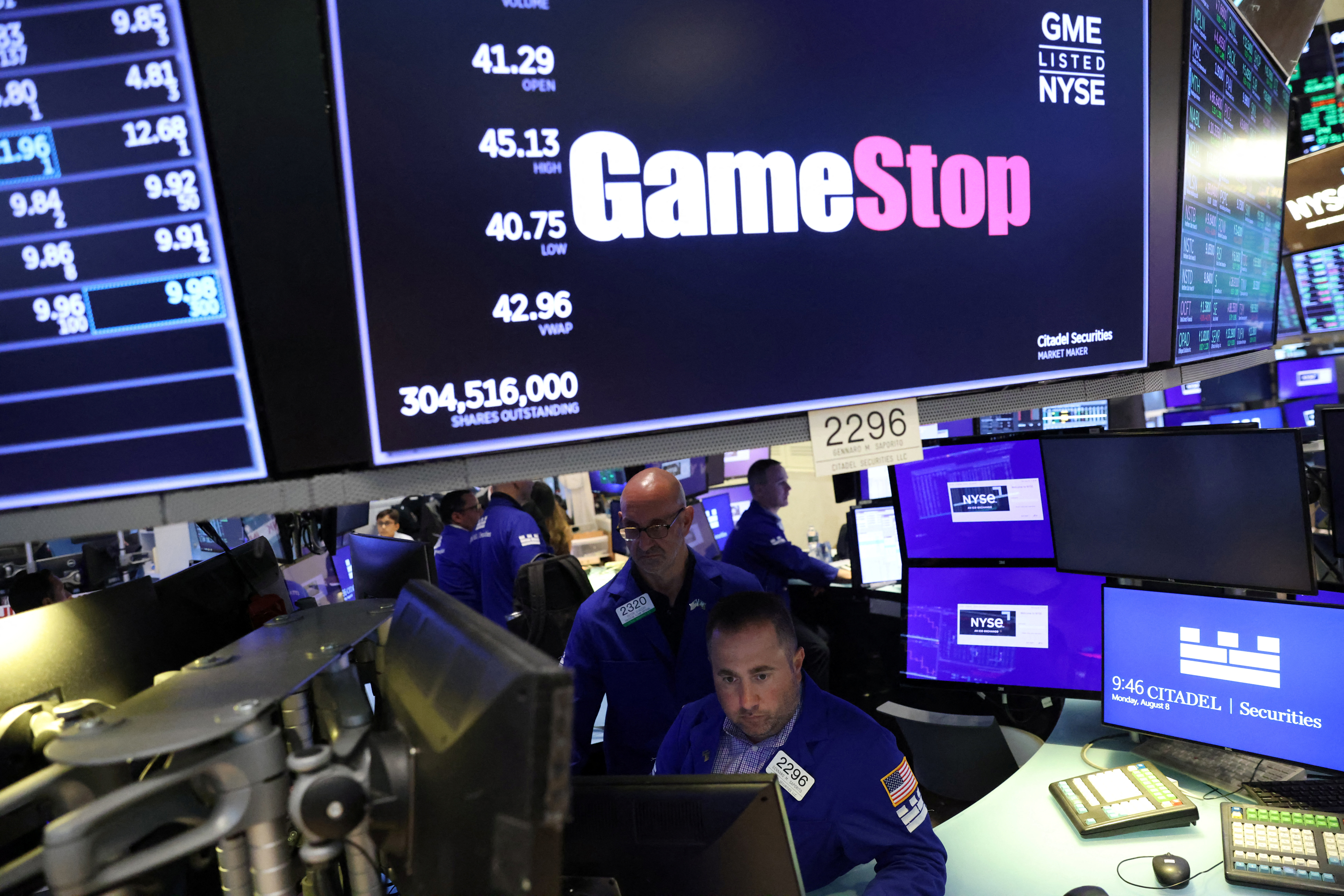
Traders work under GameStop Corporation (NYSE: GME ) signage on the trading floor of the New York Stock Exchange (NYSE) in Manhattan, New York City, United States on August 8, 2022. REUTERS/Andrew Kelly/File Photo Get license rights
Sept 28 (Reuters) – GameStop ( GME.N ) on Thursday appointed billionaire Ryan Cohen as its CEO and chairman, tightening the activist investor’s grip on the video game retailer as it seeks to make a comeback.
The brick-and-mortar retailer that once lured gamers has struggled in the age of online downloads, drawing hedge funds into the heart of a conflict between its demise in 2021 and retailers pushing up its prices.
At the height of that monumental stock rally, Cohen, GameStop’s biggest investor, joined the board to help make it a hub for e-commerce.
His fame came from building Chevy, an online pet products retailer that he sold for $3.5 billion in 2017, into a powerhouse.
Cohen became executive chairman at GameStop in June after former CEO Matt Furlong was fired. The company said he will relinquish that title and receive no compensation for his new roles.
The billionaire initially tried to aggressively move GameStop toward an online-focused model as the chain, dependent on brick-and-mortar stores, tried to revive its business.
But he scaled back some of those e-commerce plans, relying on GameStop’s brick-and-mortar stores as places where customers could pick up online orders.
The company’s quarterly earnings earlier this month indicated the strategy was working as strong demand for video games, collectibles and consoles helped GameStop post a smaller-than-expected loss and revenue.
However, there are concerns among analysts about the slow turnaround at GameStop and Cohen’s mixed track record as an activist investor in companies he has targeted, including bankrupt retailer Bed Bath & Beyond and Nordstrom ( JWN.N ).
The company has seen several executive departures in recent years, with former chief operating officer Jenna Owens leaving in October 2021, seven months after joining.
Former finance chief Michael Regubero, who was hired at the same time as Furlong, was fired last year.
“The appointment of a controlling shareholder reflects the difficulty GameStop has had in attracting executives,” said Wedbush analyst Michael Bacter.
“We are certain that GameStop’s shift in sales to subscriptions and digital downloads is sealing its fate as physical software sales decline.”
Shares of the video-game retailer have lost more than 80% of their value in 2021, including a more than 7% decline this year. They traded down 2% on Thursday.
Reporting by Aditya Soni and Jaspreet Singh in Bangalore; Editing by Arun Koiyur
Our Standards: Thomson Reuters Trust Principles.